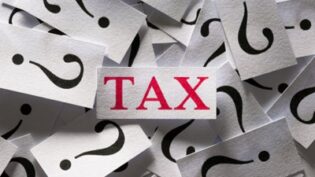What are the tax problems with paying employees’ individual health insurance plans with a business check?
By: Rick Gossett

What are the tax problems with paying employees’ individual health insurance plans with a business check? Most insurance companies are telling me they do not allow this, can you explain why?
Answer: State regulations may prohibit insurers from accepting payment for individual health insurance policies from parties other than the individual insured, or it may be an internal policy intended to direct eligible employers to group health policies. You would need to check with the companies for the reason(s) for their policies.
As to the tax issues with employers paying directly for the individual health insurance policies of their employees, the primary tax issue for both parties is that such payments generally will be treated as taxable employee fringe benefits, subject to payroll taxes and reported as taxable wages on the employees’ Forms W-2. A better option would be for the employees to procure and pay for the policies themselves and then for the employer to reimburse its employees for their health insurance costs. IRS rules permit employers to reimburse their employees for the cost of individual health insurance policies, exclude the reimbursement from the employees’ wages, and deduct those reimbursements as business expenses.
An employer can reimburse employees for the cost of their personally paid health insurance and exclude the reimbursement from the employees’ taxable wages under IRC Section 106 as discussed in Revenue Ruling 61-146. When the employees procure and pay for the health insurance coverage themselves, they must provide the employer with adequate substantiation of their insurance costs in order for the employer to exclude the reimbursement from their wages. While a health insurance reimbursement plan under IRC Section 106 need not be in writing, it is advisable for an employer to adopt a written plan to preserve the Social Security and Medicare tax exclusions available for employer-provided accident and health benefits under IRC Section 3121.
You can review IRC Sections 106 and 3121 and Revenue Ruling 61-146 at the following websites to develop a better understanding of this option:
- USC 106 Contributions by Employer to Accident and Health Plans: law.cornell.edu
- USC 3121 Definitions: law.cornell.edu
- Contribution by Employer to Accident and Health Plans: irs.gov
- Internal Revenue Code Sections Affecting Employer Benefit Plans: benefitslink.com
A Section 106 health insurance reimbursement plan may be an option for providing health insurance benefits to a company’s common-law employees, but the employers will need to offer a reimbursement amount that provides a sufficient incentive for its employees to purchase their own insurance, particularly if an employee’s individual or family health insurance runs several hundred dollars per month. The employer may need to adjust this amount to achieve 100% participation by its employees. However, it is important to note that this option would not allow an employer subject to the employer mandate under the Affordable Care Act to circumvent the tax penalties under the law if it fails to offer government-approved health insurance coverage to its employees.
- USC 106 Contributions by Employer to Accident and Health Plans: law.cornell.edu
- USC 3121 Definitions: law.cornell.edu
- Contribution by Employer to Accident and Health Plans: irs.gov
- Internal Revenue Code Sections Affecting Employer Benefit Plans: benefitslink.com
A Section 106 health insurance reimbursement plan may be an option for providing health insurance benefits to a company’s common-law employees, but the employers will need to offer a reimbursement amount that provides a sufficient incentive for its employees to purchase their own insurance, particularly if an employee’s individual or family health insurance runs several hundred dollars per month. The employer may need to adjust this amount to achieve 100% participation by its employees. However, it is important to note that this option would not allow an employer subject to the employer mandate under the Affordable Care Act to circumvent the tax penalties under the law if it fails to offer government-approved health insurance coverage to its employees.
2692 Views












